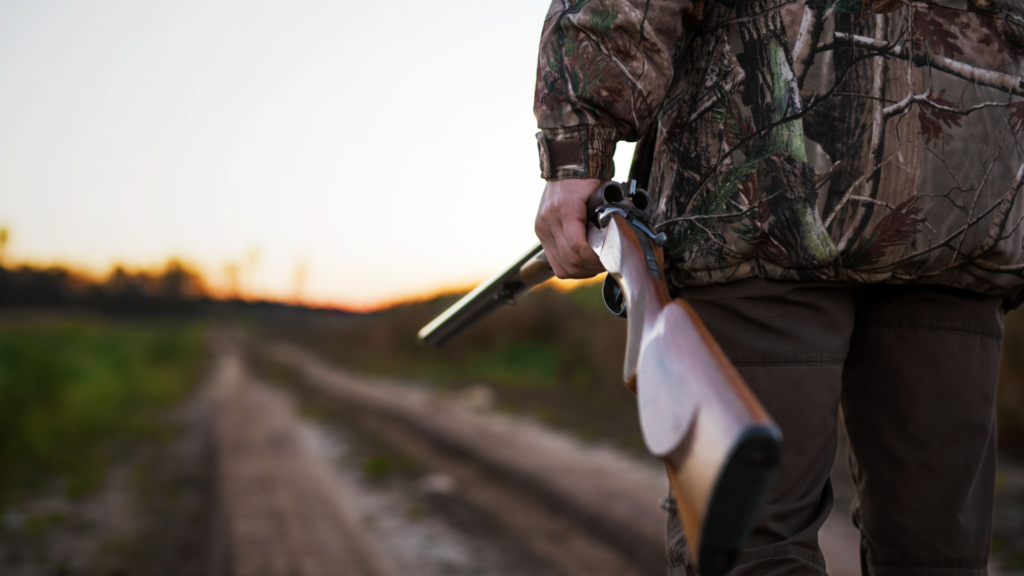Ah, the great outdoors! There’s nothing quite like the thrill of hunting, with the crisp morning air, the anticipation of the hunt, and the camaraderie among fellow enthusiasts. Whether you’re a seasoned hunter tracking deer with your trusty AR15 or a newbie setting out on your first expedition, knowing a thing or two about survival in the wild can literally save your life. Let’s dive into some essential survival skills every hunter should have up their sleeve – first aid, navigation, and emergency preparedness.
First Aid: The Hunter’s Lifeline
When Things Go South
It’s not uncommon for minor accidents or injuries to happen in the wilderness. Being prepared means having a basic knowledge of first aid and carrying a well-stocked first aid kit. Here are a few essentials every hunter should know:
- How to treat cuts and scrapes – Clean the wound with water, apply antibiotic ointment, and cover it with a bandage.
- Dealing with sprains and fractures – Immobilize the affected area, apply a cold pack to reduce swelling, and seek medical attention if necessary.
- Recognizing and treating hypothermia – Keep the person warm and dry, offer warm liquids (but no alcohol or caffeine), and get them to a warm place as soon as possible.
Remember, the goal is to stabilize the situation until you can get professional help.
Navigating the Great Unknown
Old School Meets New School
Getting lost is easier than you think, especially if you’re hunting in unfamiliar territory. Here’s where your navigation skills come into play.
- Map and Compass – The classic combo. Learning to read a topographical map and how to use a compass can save you from wandering aimlessly.
- GPS Devices – Technology is your friend. A handheld GPS device can pinpoint your location, but don’t solely rely on it. Batteries die, and gadgets can fail.
- Natural Navigation – Pay attention to nature’s cues – the position of the sun, stars, and even the moss on trees can guide you.
Pro Tip
Practice navigation skills in a safe, familiar area before heading into the wilderness. It’s a fun and practical way to prepare for your next hunting trip.
Emergency Preparedness: Expect the Unexpected
The Essentials
When heading out into the wild, hope for the best but prepare for the worst. Here are some must-haves for your emergency kit:
- Water and Water Purification – Stay hydrated. Carry water and know how to purify natural water sources.
- Shelter – A lightweight tent or emergency bivy can make a huge difference in harsh conditions.
- Fire Starting Tools – Matches, lighters, and fire starters are crucial for warmth and cooking.
- Signaling Devices – A whistle or mirror can be lifesavers if you need to signal for help.
The Hunter’s Mindset: Staying Sharp and Safe
Mental Preparedness: Your Secret Weapon
Beyond the tangible skills and gear, there’s an often overlooked aspect of survival in the wild: your mindset. Having the right attitude can dramatically impact your ability to navigate emergencies and make smart decisions under pressure. Let’s explore how to cultivate a resilient hunter’s mindset.
Adaptability
Nature is unpredictable. Weather can change in an instant, animals move on their own terms, and even the best-laid plans can go awry. Embracing adaptability means being ready to change your strategy, route, or even your goal based on the conditions you face. The ability to think on your feet can be the difference between a successful hunt and a call for rescue.
Patience
Patience is a virtue, especially in hunting and survival situations. Rushed decisions often lead to mistakes. Whether you’re waiting for the perfect shot or deciding the best time to move to a safer location, patience allows you to assess the situation thoroughly and act when the time is right.
Awareness
Being truly present and aware of your surroundings is crucial. This means listening to the subtle sounds of the forest, observing changes in the environment, and being mindful of your own impact on nature. Awareness can help you avoid potential dangers, find your way, and even track game more effectively.
Resilience
Lastly, resilience is about bouncing back from setbacks. The wild can be harsh, and things don’t always go as planned. Maybe you get lost, the weather turns against you, or you miss a shot. Resilience is about pushing through these challenges, learning from them, and not letting them dampen your spirit for adventure.
Stay Calm and Carry On
In any emergency, keeping a cool head is half the battle. Don’t panic. Use your skills, your gear, and your common sense to assess the situation and make informed decisions.
Q&A: Your Survival Skills Checklist
Q: What’s the most important survival skill for hunters? A: It’s hard to pick just one, but being prepared – mentally and physically – tops the list. Know your limits, know your gear (yes, even that AR-15), and know basic survival techniques.
Q: How can I practice my survival skills? A: Start in your backyard or a local park. Practice building a shelter, starting a fire without matches, and using your map and compass. The more you practice, the more confident you’ll become.
Q: Can I learn first aid and navigation online? A: Absolutely! There are plenty of reputable online courses and tutorials. However, nothing beats hands-on training and real-life practice.
So, there you have it, folks! Whether you’re out in the wilderness with your AR15, tracking game, or simply enjoying the beauty of nature, these survival skills can make all the difference. Remember, being prepared is not just about packing the right gear; it’s about having the knowledge and skills to tackle whatever comes your way.

